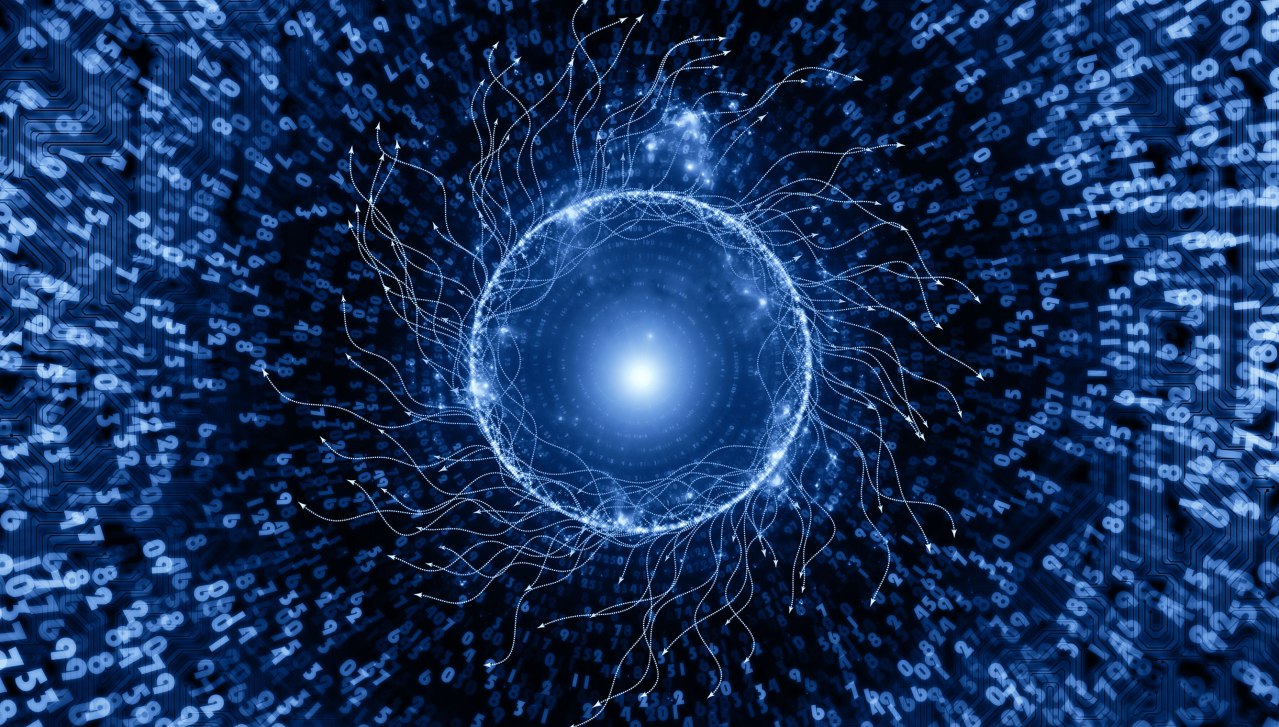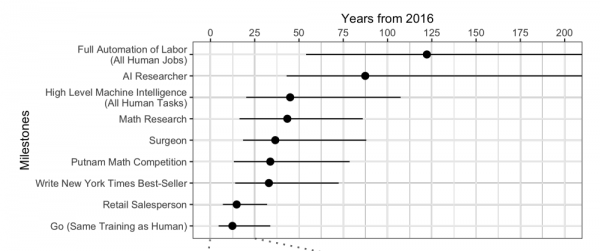
Artificial intelligence gradually captures the world. So far we are talking only about a weak form of AI, which, for example, can perfectly play go or recognize images, but which is incapable of much of what a person can do. Neural networks, cognitive systems and other software platforms already help a person manage a car, predict the weather, direct financial flows, assess the level of information security and diagnose patients of various kinds of medical institutions.
Can a computer ever surpass a person in everything that is now considered our prerogative? If so, when will this happen? According to a survey of experts, this will happen necessarily, but when there is a question, the answer to which requires careful analysis and assessment of current trends. The staff of the Oxford Institute for the Study of the Future of Humanity tried to make this prediction.
Scientists have carefully analyzed the work of world experts in artificial intelligence and interviewed several leading experts in this field. A preliminary assessment of the answers showed interesting.

In total, more than one and a half thousand scientists were polled, 352 of them answered. Then the answers studied and derived the average. The forecasts of experts show that AI will become a better person in the translation of languages by 2024, write school essays by 2026, and drive trucks by 2027.
In other areas, you will have to train for a long time, experts say, artificial intelligence. So, it is better for a person to sell AI products no earlier than 2031, to write bestsellers - not earlier than 2049, and to conduct operations - not earlier than 2053.
Perhaps experts are wrong. For example, it was previously believed that AI will win against the best of people in go without a handicap no earlier than 2027. The AlphaGo system
beat the most famous champions in this game already in this decade. Lee Sedol was the last person to beat a computer system of this kind. Probably, the forecast is erroneous and is ten years behind the reality.
Today, scientists give a 50 percent chance that in 45 years the AI will become a better person if not in everything, then in the vast majority of fields and disciplines. On the other hand, experts may be overly optimistic, since there is no guarantee that there will not be any difficultly surmountable obstacles on the AI path and then the predictions may not be realized at all.
Interestingly, scientists from different countries gave different time estimates for improving the capabilities of AI. Experts from North America believe that the computer will surpass the person in about 70 years, in Asia they hope that this will happen in 30 years. It is not clear why there is such a discrepancy in the time estimate. Maybe scientists from Asia know something that their North American colleagues don't know.
The most interesting answers to these questions were
given by Robin Hanson, Martin Rothblatt, Raymond Kurzweil.
Hanson believes that in about a hundred years, the capabilities of computer systems will equal or exceed the capabilities of a person. But this is only if a person can create emulators of the human brain that will allow machines to think in much the same way as a person does. If this does not happen, then the evolution of AI is postponed for a period of 2 to 4 centuries.
Hanson also says that if a qualitative leap in the development of AI does occur, it will have a positive effect on the person’s future - for example, the economy will develop at an unprecedented pace.
Martin Rothblatt claims that in a few decades, it will be possible to achieve a digital copy of a person, as a result of which people stop dying. The physical shell will go away, of course, but the digital copy will become eternal.
Raymond Kurzweil is sure that the computer will surpass the person by 2029. At the same time, he agrees with his colleagues that AI can help us overcome the most dangerous diseases, improve food supply, develop the economy and improve the state of the environment. Kurzweil argues that it would be nice to keep the AI under control so that computers benefit the person without any side problems.
Full text of the study:
arXiv: 1705.08807 [cs.AI]